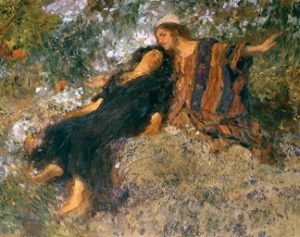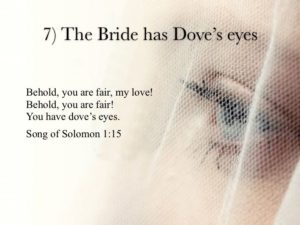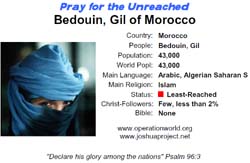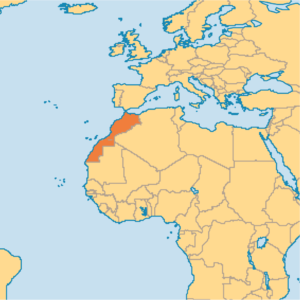SEPTEMBER 6- TODAY’S READING FROM THE ONE YEAR BIBLE- SONG OF SOLOMON 1:1-4:16; 2 CORINTHIANS 8:16-24; PSALM 50:1-23; PROVERBS 22:22-23
TODAY’S READING FROM THE OLD TESTAMENT- SONG OF SOLOMON 1:1-4:16
 Today we leave behind the Book of “Vanity of Vanities” (Ecclesiastes) and start reading the “Song of Songs” (The Song of Solomon). The former book dealt with life “under the sun,” lived within the limits of natural perception, reason, and conscience. The Reporter described the emptiness of a life lived separated from a personal relationship with the Living God.
Today we leave behind the Book of “Vanity of Vanities” (Ecclesiastes) and start reading the “Song of Songs” (The Song of Solomon). The former book dealt with life “under the sun,” lived within the limits of natural perception, reason, and conscience. The Reporter described the emptiness of a life lived separated from a personal relationship with the Living God.
The Song of Solomon points to the deepening love of the Shulamite maiden for the Shepherd- King in a marriage covenant relationship.
 There has been a lot of debate recently about the Song of Solomon. Archeologists have discovered writings in a similar style to this book. They tend to merely see this book as a compendium of love poems written to be performed as a drama for one of Solomon’s weddings. (He had 700 wives and 300 concubines.)
There has been a lot of debate recently about the Song of Solomon. Archeologists have discovered writings in a similar style to this book. They tend to merely see this book as a compendium of love poems written to be performed as a drama for one of Solomon’s weddings. (He had 700 wives and 300 concubines.)
However, the Book is more than just a tribute to marital love and sexual desire, although it does describe the appreciation that the bride and groom have for each other’s sexuality. The Jews traditionally see this book as describing the love that the Lord God has for His people, Israel, and the love that His people have for Him.
It is easy to see how the Song of Solomon speaks of the love that the Heavenly Bridegroom has for His bride, the church, and the church for the Bridegroom. It is also a book that reflects the deepening love that the believer has for the Lord and the Lord for the believer.
 The Book tells how Solomon, who visited the various parts of the then united kingdom, came upon a royal vineyard in the north. Shulem was apparently a village in the northern territory of Ephraim. There, the king and his royal entourage came upon a poor but beautiful peasant woman tending her vines. The woman was embarrassed, and feeling very self-conscious, ran from them. The king saw the woman and was captivated by her beauty. He could not forget her. Later he returned to the vineyard disguised as a Shepherd, determined to win her to Himself.
The Book tells how Solomon, who visited the various parts of the then united kingdom, came upon a royal vineyard in the north. Shulem was apparently a village in the northern territory of Ephraim. There, the king and his royal entourage came upon a poor but beautiful peasant woman tending her vines. The woman was embarrassed, and feeling very self-conscious, ran from them. The king saw the woman and was captivated by her beauty. He could not forget her. Later he returned to the vineyard disguised as a Shepherd, determined to win her to Himself.
So here we have a picture of the Lover of the lowly, our “Shepherd/King”, who left His throne to seek us out. What a wonderful picture of Christ, the lover of our souls!
The Song starts with the longing of the maiden for personal fellowship with this Shepherd. She speaks in the company of the daughters of Jerusalem in verses 1:2-7.
 Song of Songs 1:2 2 “May he kiss me with the kisses of his mouth! For your love is better than wine.
Song of Songs 1:2 2 “May he kiss me with the kisses of his mouth! For your love is better than wine.
This passage looks beyond the intimate embrace of a man and a woman and speaks of something that surpasses the sweetest that this natural world can offer. That which proceeds from the mouth of God is the Spirit-wrought word of God (Matthew 4:4). When the Holy Spirit anoints the words of His mouth, they touch our hearts, capture our affections. They are met with the lips of our confession of faith. The result is that we are bonded in the embrace of divine fellowship.
The title, ‘Christ,’ in the Greek language, literally means ‘the Anointed One’. His Name is like ointment (anointing oil) poured out. His attributes are summed up in His Name. At Pentecost, His Name is poured out upon His beloved body, the church. We share His communicable attributes through the ministry of the Holy Spirit.
 The fact that we are drawn into fellowship with the Son by the Father is reflected in verse 4:
The fact that we are drawn into fellowship with the Son by the Father is reflected in verse 4:
Song of Songs 1:4 4 “Draw me after you and let us run together! The king has brought me into his chambers.” “We will rejoice in you and be glad; We will extol your love more than wine. Rightly do they love you.”
When we are brought into the household of faith, we can appreciate all who love Him. We join in their rejoicing and praise.
The Shulamite makes apologies for her rough appearance. However, the bridegroom will look beyond the woman’s outward appearance, damaged by too much exposure to ‘the natural light’, and see her in the light of redemption.
This woman acknowledges that due to all her service for her siblings and their vineyards, she failed to take care of her own. In His presence, she is mindful of her lack.
Don’t we find that this can be the case in our own lives? We are so busy doing the Lord’s work, work in the vineyard, that we neglect our own relationship with the Lord, our own vineyard. The vineyard imagery triggers the organic unity, the Head-to-body, one flesh relationship that Jesus spoke of being available to His disciples when He said, “I am the vine and you are the branches” (John 15:5).
 This Shulamite maiden knows that she has been called into a pure and singular relationship with this Shepherd King, even though she is one of many potential brides. She seeks to know this Shepherd. She is curious to ask more about Him. Where does he pasture his flocks? Where does he make them lie down at noon? Why should she be like one who veils herself, now that she knows who she is? (1:7)
This Shulamite maiden knows that she has been called into a pure and singular relationship with this Shepherd King, even though she is one of many potential brides. She seeks to know this Shepherd. She is curious to ask more about Him. Where does he pasture his flocks? Where does he make them lie down at noon? Why should she be like one who veils herself, now that she knows who she is? (1:7)
To understand the Book, you need to distinguish who is speaking. When the term ‘my beloved’ or ‘you who my soul loves’ is used, the speaker is the bride. When the term, ‘my love,’ ‘my darling,’ it is the bridegroom.
The Bridegroom-Shepherd-King speaks in verse 9.
The Shulamite speaks again in verses 12-14 and receives the Bridegroom’s reply in verse 15.
The Bride speaks in verse 16 through to Chapter 2, verse 1.
She feels like a common flower, nothing special. She is just one of many lowly flowers of the field.
Song of Songs 2:1 1 “I am the rose of Sharon, The lily of the valleys.”
He disagrees with her, seeing her once again in a different light.
He pivots on that statement. She is not a common flower. She is one of a kind.
Song of Songs 2:2 2 “Like a lily among the thorns, so is my darling among the maidens.”
She responds in verses 3-6, describing him and the profound impact he has had upon her. She has been called into an intimate relationship with this Shepherd-King who provides shelter and sustenance.
In verse 7, she speaks to the daughters of Jerusalem, asking that they do not disturb her privileged communion with her bridegroom.
Chapter 2:8-17 describes the seeking bridegroom and the unresponsive bride, and Chapter 3:1-5 describes the seeking bride and the responsive bridegroom!
The call of the bridegroom is a call to participation in a shared life together in a new season of life. Notice the sevenfold signs of resurrection in verses 10-13:
- The winter is past. (2:11a)
- The rain is over and gone. (2:11b)
- Flowers have already appeared on the land (2:12a)
- The time has arrived for the pruning of the vine (2:12b).
- The voice of the turtledove is heard in our land (2:12c).
- The fig tree has ripened (2:13a).
- The vines in blossom have given forth their fragrance (2:13b).
 What an invitation! She shares what she has heard of the bridegroom’s call with the daughters of Jerusalem
What an invitation! She shares what she has heard of the bridegroom’s call with the daughters of Jerusalem
Song of Songs 2:13c 13c. Arise, my darling, my beautiful one, and come along!'”
He speaks of his affections for her and that he longs to hear her voice in the secret steep pathway. This is a wonderful picture of welcomed divine communion and conversation in prayer (2:14).
She recognizes that there are influences that can sabotage the fellowship she shares with her Beloved- little foxes that spoil the vine (2:15) and mar possibilities of future fruitfulness.
Although she professes a relationship with Him, she turns him away (2:16-17); her beloved moves on.
In Chapter 3, she has a dream. She seeks him but cannot find him. She looks for him in the wrong places and consults the wrong people.
As believers who are seeking fellowship with the Lord, we sometimes make the same mistakes.
Why did it take so long for her to find her bridegroom? She sought him within the confines of her own comfort zone. The bridegroom is found at the cross. When the Lord Jesus calls His bride, she is to take up the cross also. We must come to the Lord on His terms and not expect Him to come to us on ours. She sought him at the end of the day on her bed. Yet He is to be sought from the start of the day, from the rising of the sun, and throughout the day. He is to be our first thought by day and by night. He was not to be found in the city. He is not tied up in the traffic of this world, but He is found on the trail of the flock, serving by the shepherds’ tents (1:8). We can find Him in fellowship with His flock, dining at his banqueting hall, climbing mountains of Bether, or in the secret place of the steep stairway.
Seek the Lord where He may be found- at the cross, in the fellowship of His people, the flock of His pasture, where He is ministering through His Word, by the shepherd’s tents and His banqueting table. Find Him scaling the mountains of mission. Find Him in the secret place of prayer.
 If we are seeking fellowship with the Lord, we must be aware of His moves, His interests, and the places He frequents. The gospels do not record a single night that Jesus spent within the city walls of Jerusalem, except the night He was betrayed. And even then, He went outside the city walls to commune with His Father in Gethsemane. He did not sleep in the city. He was tried and condemned to die, banished by those in the city to die outside the city.
If we are seeking fellowship with the Lord, we must be aware of His moves, His interests, and the places He frequents. The gospels do not record a single night that Jesus spent within the city walls of Jerusalem, except the night He was betrayed. And even then, He went outside the city walls to commune with His Father in Gethsemane. He did not sleep in the city. He was tried and condemned to die, banished by those in the city to die outside the city.
She also sought the Lord, seeking advice from the wrong people. The watchmen were concerned with the law of the land, but they did not know the Shepherd King personally. They might have known about Him, but they did not know Him. Far from directing her to Him, they are clueless, and in the future, will wound her (6:7).
 Eventually, she finds him outside the city. She holds on to him and will not let him go until she brings him into her ancestral home, or “the room of her who conceived me.” In other words, she is willing to be joined to him in the intimate love embrace of marriage (3:4).
Eventually, she finds him outside the city. She holds on to him and will not let him go until she brings him into her ancestral home, or “the room of her who conceived me.” In other words, she is willing to be joined to him in the intimate love embrace of marriage (3:4).
Song of Solomon 3:6-11 describes the King’s wedding day. It is a glorious day of fulfilled promises.
 Chapter 4 is a love song from the Bridegroom for the Bride.
Chapter 4 is a love song from the Bridegroom for the Bride.
The bride is poetically described in redemption’s terms. Eyes, hair, teeth, lips, temples, neck, and breasts. She has the eyes of doves, reminding us of the eyes of the Holy Spirit.
He holds her in the embrace of his affection, seeing her in her glory,
Song of Songs 4:6-7 6 “Until the cool of the day When the shadows flee away, I will go my way to the mountain of myrrh and to the hill of frankincense. 7 “You are altogether beautiful, my darling, and there is no blemish in you.
 He invites her to join him in his mission.
He invites her to join him in his mission.
Song of Songs 4:8 8 “Come with me from Lebanon, my bride, may you come with me from Lebanon. Journey down from the summit of Amana, From the summit of Senir and Hermon, From the dens of lions, From the mountains of leopards.
Life with the Shepherd King is a redemptive adventure that is not without dangers.
The bridegroom confesses that he has strong feelings for his bride.
Song of Songs 4:9-10 9 “You have made my heart beat faster, my sister, my bride; You have made my heart beat faster with a single glance of your eyes, With a single strand of your necklace. 10 “How beautiful is your love, my sister, my bride! How much better is your love than wine, And the fragrance of your oils Than all kinds of spices!
The bridegroom receives with joy an intimate relationship with his bride. She is his inheritance. His enclosed garden. His refreshment.
How wonderful to know that the bridegroom rejoices over His bride!
Verse 16 is an invitation to mature in love with deeper knowledge of one another.
The Holy Spirit is like the wind that can stir up the fragrance of Christ in His church.
Song of Songs 4:16 16 “Awake, O north wind, and come, wind of the south; Make my garden breathe out fragrance, let its spices be wafted abroad. May my beloved come into his garden and eat its choice fruits!”
TODAY’S READING FROM THE NEW TESTAMENT – 2 CORINTHIANS 8:16-24
Paul is encouraging the Corinthians to participate in the grace of giving, a ministry of the Holy Spirit. They can do this by not neglecting their pledge to help the church in Jerusalem financially.
He gave them the encouraging example of the Macedonian churches (2 Corinthians 8:1-6) and then the example of Christ Himself (2 Corinthians 8:9). He encourages them to finish what they started and keep their commitment (2 Corinthians 8:10-15).
Paul takes this matter of financial responsibility and accountability seriously.
He takes precaution in how the money is to be collected, transported, and distributed. Titus and brothers who have been tested and proved to be faithful are appointed to safeguard the mission of collecting and delivering the amounts collected. This ensured that no funds are siphoned off for other purposes.
 Paul expresses his efforts as “taking precaution so that no one will discredit us in our administration of this generous gift.” (2 Corinthians 8:20).
Paul expresses his efforts as “taking precaution so that no one will discredit us in our administration of this generous gift.” (2 Corinthians 8:20).
2 Corinthians 8:21 21 for we have regard for what is honorable, not only in the sight of the Lord, but also in the sight of men.
TODAY’S READING FROM THE BOOK OF PSALMS – PSALM 50:1-23
God Himself is Judge (Psalm 50:6). In this Psalm He is pictured as bringing His people to account in a court of law. He calls the heavens and the earth as witnesses to the charges He is about to bring (50:4). He testifies against their religious externalism. They go through the motions of worship, satisfying ordinances with their external behavior, but their hearts are far from Him. The Lord is not impressed with their rituals. He needs nothing from them, for all creation belongs to Him.
Psalm 50:10-11 10 “For every beast of the forest is Mine, The cattle on a thousand hills. 11 “I know every bird of the mountains, and everything that moves in the field is Mine.
Those who worship God as He truly is will bring a sacrifice of thanksgiving. They will call upon Him as Lord and Savior and glorify Him as such (Psalm 50:15).
The wicked cannot fool the Lord with their religious games. He knows the heart, discerns the motives, and monitors the attitudes.
Psalm 50:17-18 17 “For you hate discipline, and you cast My words behind you. 18 “When you see a thief, you are pleased with him, and you associate with adulterers.
Out of the abundance of the heart, the mouth speaks, and the wicked give free rein to unwholesome speech. “Your tongue frames deceit” (Psalm 50:19). How cleverly the sin nature will verbally excuse and justify its wrong-doing!
To the wicked, God gives a strong warning. To the repentant, He gives strong consolation.
Psalm 50:22-23 22 “Now consider this, you who forget God, Or I will tear you in pieces, and there will be none to deliver. 23 “He who offers a sacrifice of thanksgiving honors Me; And to him who orders his way aright I shall show the salvation of God.”
TODAY’S READING FROM THE BOOK OF PROVERBS – PROV 22:22-23
Proverbs 22:22-23 22 Do not rob the poor because he is poor, or crush the afflicted at the gate; 23 For the LORD will plead their case and take the life of those who rob them.
PRAY FOR THE NATIONS- MOROCCO
Kingdom of Morocco
Africa
Geography
Northwest corner of Africa. Fertile coastal areas in the north, Atlas Mountains inland, and Sahara Desert to the south and southeast. A further 252,000 sq. km of former Spanish Sahara claimed and occupied by Morocco since 1975.
Population: 32,777,808 Annual Growth: 1.25%
Capital: Rabat
Urbanites: 56.7%
HDI Rank: 130 of 182 (UN Human Development Reports 2009)
Peoples
 Peoples: 30 (80% unreached) All peoples
Peoples: 30 (80% unreached) All peoples
Unreached Peoples Prayer Card
Official language: Arabic. Berber is used in many homes. French widely used; English increasing Languages: 10 All languages
Religion
Largest Religion: Muslim
|
Religion |
|
Pop % |
Ann Gr |
|
29,000 |
0.09 |
1.3 |
|
|
4,774 |
0.0 |
4.6 |
|
|
Muslim |
32,738,475 |
99.88 |
|
Challenges for Prayer
Stability and relative openness make Morocco one of the West’s most favored Arab nations. Yet, a troubled past and uncertain future make for challenges. Economic growth is essential to care for and give hope to the burgeoning young population, and the deeply sensitive and controversial issue of Western Sahara continues to stand between Morocco and better foreign relations. Pray for wisdom for the government, that policies and planning might establish justice, fairness, and openness.
Once believed to be the westernmost part of the world, the name Morocco is derived from the Arabic Al Maghrib, meaning “far west” or “where the sun sets.” Occupying the northwest corner of Africa, the nation was originally inhabited by Berbers, who were then conquered by Muslim Arabs after 684 AD. In the 17th century, Morocco was colonized by France and Spain, and in 1912, the nation was split into French and Spanish protectorates. Morocco became independent in 1956 and established a constitutional monarchy in 1972. The king is both the head of state and religion and has declared all those born in Morocco to be Sunni Muslim.
Morocco is the world leader in the production and export of phosphates and has 70% of the world’s reserves. The leading industries are agriculture, forestry, and tourism, and agriculture employs 40% of the workforce. Casablanca is the economic capital, the largest port, and the most populous city. There is a huge gap between wealthy and the poor, and 13% of the population live below the poverty line. Morocco also lays claim to the Western Sahara, and the nomadic Saharawi people that live there are fighting for their independence. While the UN has set up referendums to allow for self-determination, Morocco has postponed those votes.
The state religion is Sunni Islam, and ninety-nine percent of the population is Muslim. Unlike in many other Muslim nations, Christians and Jews are tolerated, though some freedoms have deteriorated in recent years. Despite this tolerance, Christians are monitored by authorities, and some have been imprisoned. Dozens of Christian workers were expelled in 2010. The majority of Moroccans have a strong prejudice against Christians and are resistant to the Gospel, and the media helps fuel these attitudes. In an effort to avoid the religious violence and conflict occurring between Muslims and Christians in other African nations, the Moroccan people and government try to keep all Christian activity secret. The government is opposed to an indigenous Moroccan Church, but one is emerging nonetheless, and an estimated 2,000 Moroccan believers meet in small house churches. Unity of the church is difficult with believers scattered around the nation, sometimes isolated from other believers.
PRAYER: Heavenly Father, we delight in You for the great love shown to us. Thank You for betrothing us to Your Son and calling us into fellowship with the redeemed. We thank You also for the gift of marriage and how it reflects so many wonderful truths about the community of Oneness we are called to share with You throughout the ages. We thank You for the gift of love, marriage, and how human sexuality by Your design is for our good and Your glory. Teach us how to cultivate our communion with You and participate with Your glorious purposes together with Your church. In Jesus’ Name.


